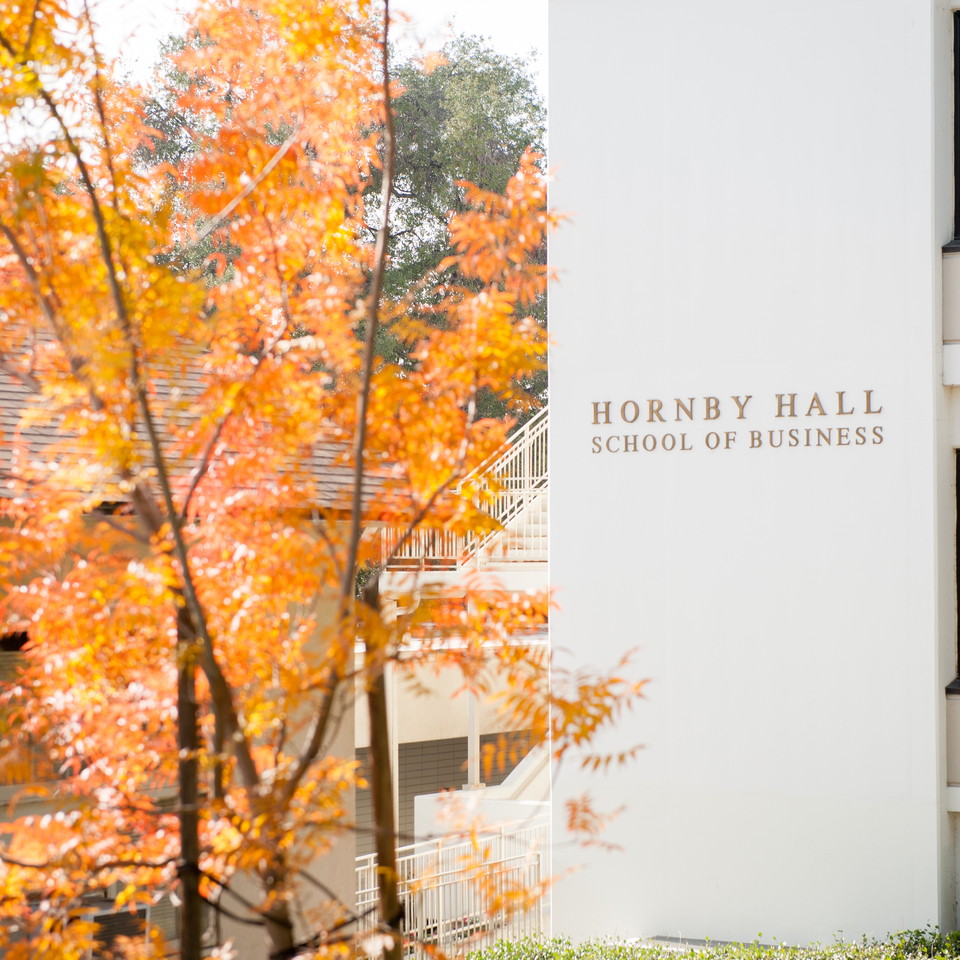
Explore academic programs
School of Business & Society offers a bachelor's degree completion program, undergraduate and graduate programs, accelerated degrees, and certificates.

Undergraduate programs
Explore the bachelor's degree completion program.

Graduate programs
Explore MBA and master's programs in GIS, organizational leadership, and business analytics.

Certificate programs
Prepare personally and professionally with certificate programs to enhance your skills and advance your career.

Meet our Dean
First stepping foot on the Redlands campus this summer, Jennifer Madden saw possibility and opportunity. Now serving as the H. Jess and Donna Colton Senecal Endowed Dean of U of R’s School of Business & Society (SBS), Madden brings a wealth of experience in business, community, and education, along with a bold vision for excellence in learning. Read more about her vision to create a better society through business.
Meet our faculty
At University of Redlands School of Business & Society, you’ll learn from the best. Representing a wide range of professional and academic disciplines, our faculty members bring global, multidisciplinary, and real-world experience to the classroom and are committed to student success.

Accreditation
University of Redlands School of Business & Society is accredited by the Accreditation Council for Business Schools and Programs (ACBSP). Founded in 1988, ACBSP is the premier accreditation body that accredits business programs of exceptionally high quality at over 1,000 institutions around the globe.

Explore the world
Choose from among several short-term study abroad courses or global and domestic consultancy capstone options tailored to meet your professional and academic interests.
Distinctive centers & schools
Specialized business resources and innovative programs offer opportunities that enhance academic and professional growth.

Presidio Center for Sustainable Solutions
Explore sustainability-focused graduate education through the Presidio Center for Sustainable Solutions.

Center for Spatial Business
Gain insight into the intersection of location analytics and spatial business education.

Banta Center for Ethical and Purposeful Leadership
Opportunities for developing a keen sense of ethics and responsibility in business leadership.

Academic support and resources
Looking for help navigating the student experience? The academic advisors at the Student Success Center (SSC) provide exceptional advising and academic support for all students.
Get involved
Learning opportunities to expand your educational experience.

Business Leadership Programs

Spatial Business Initiative
Learn more about the Spatial Business Initiative through the School of Business & Society at University of Redlands.

Purposeful Leadership Initiative
Learn more about the Purposeful Leadership Initiative through the School of Business & Society at University of Redlands.

Career Development
The Office of Career & Professional Development further supports your business journey with personalized guidance, exclusive networking opportunities, and expert resources, all designed to propel students toward long-term career success.
Office of the Dean
School of Business & Society is housed in Hornby Hall at the Redlands campus. Learn more about this office.
Contact
1200 East Colton Ave.
Redlands, CA 92373

Take your next steps
Seize the endless opportunities and pursue your future at University of Redlands.




